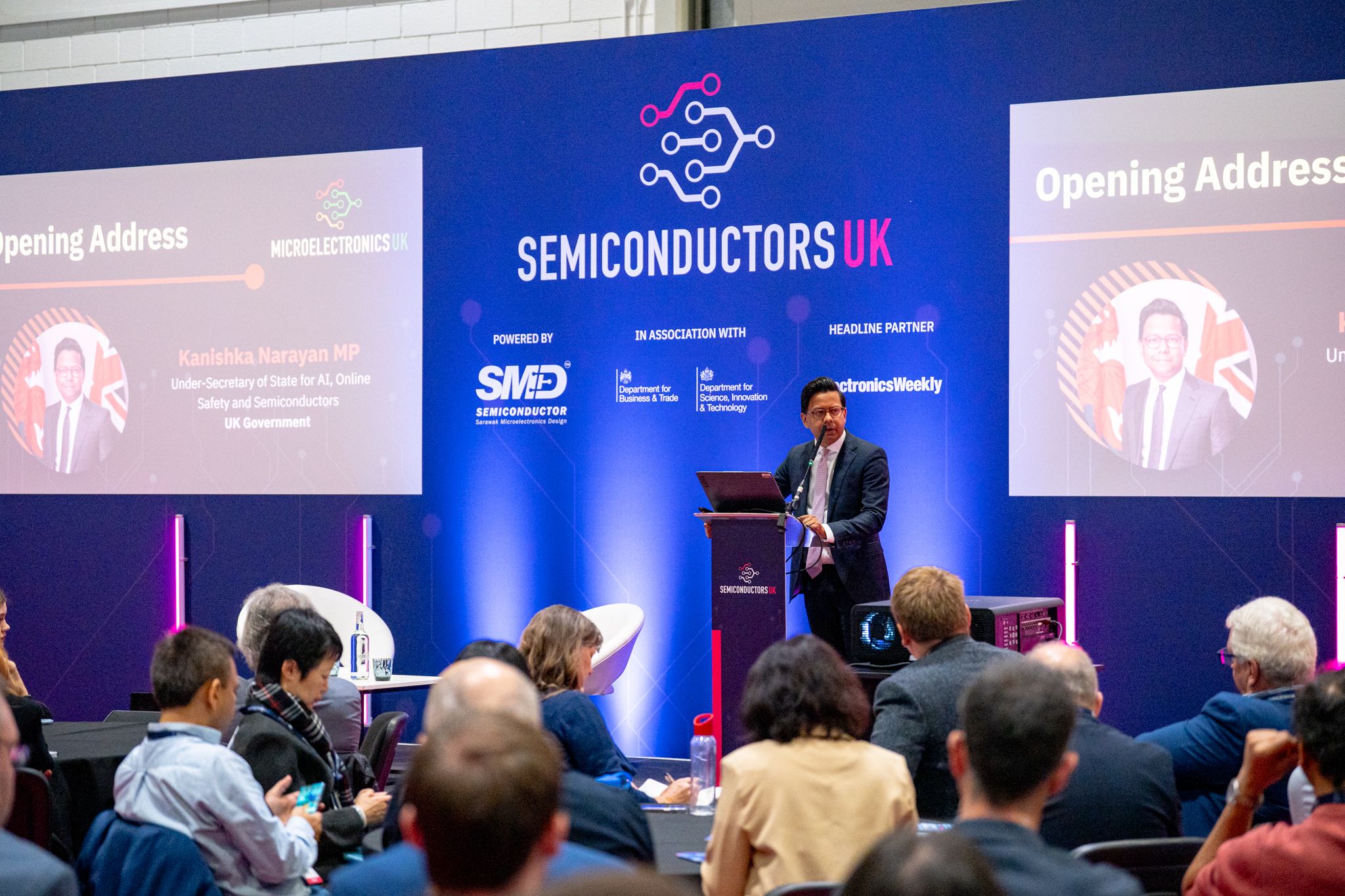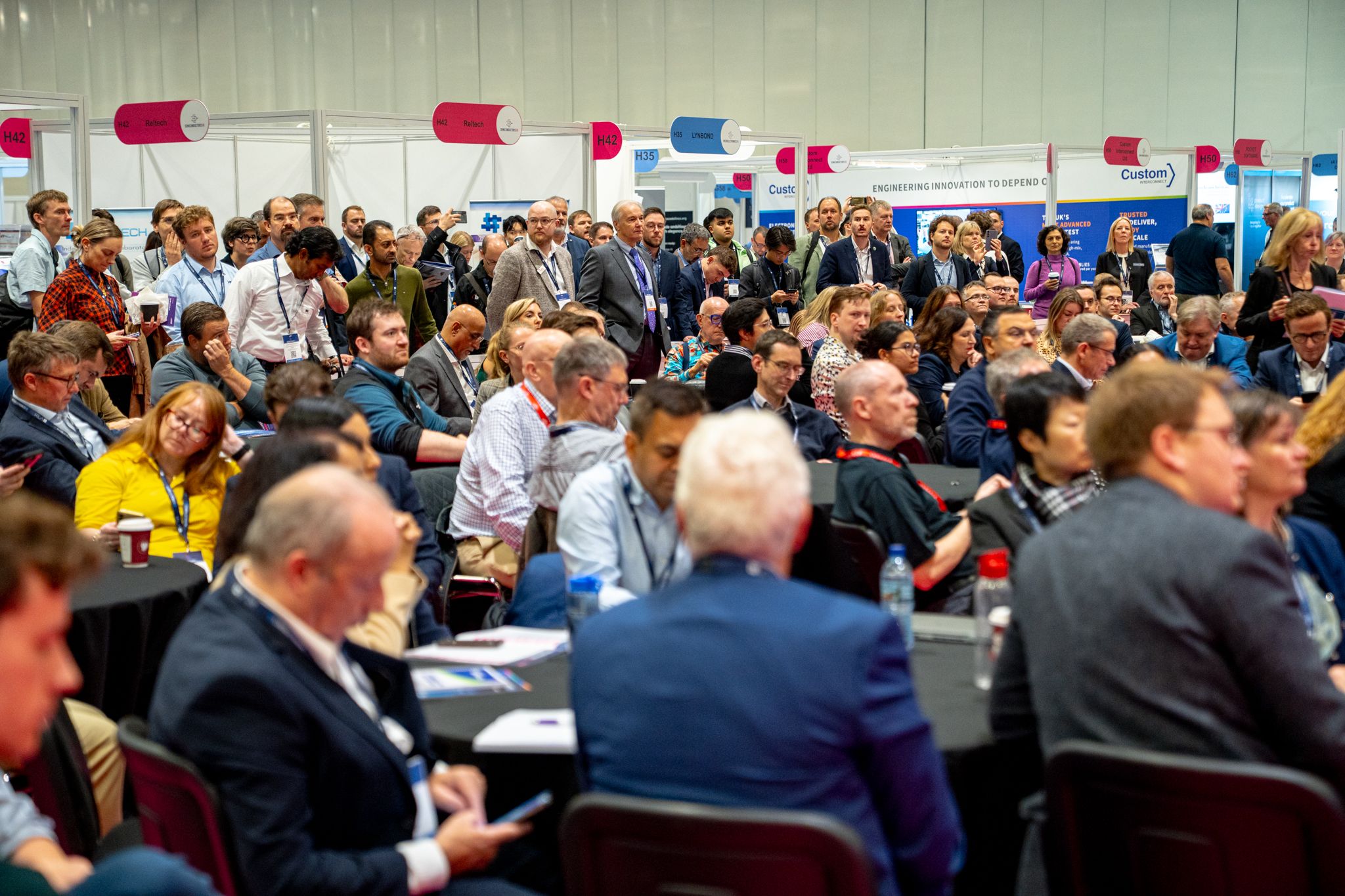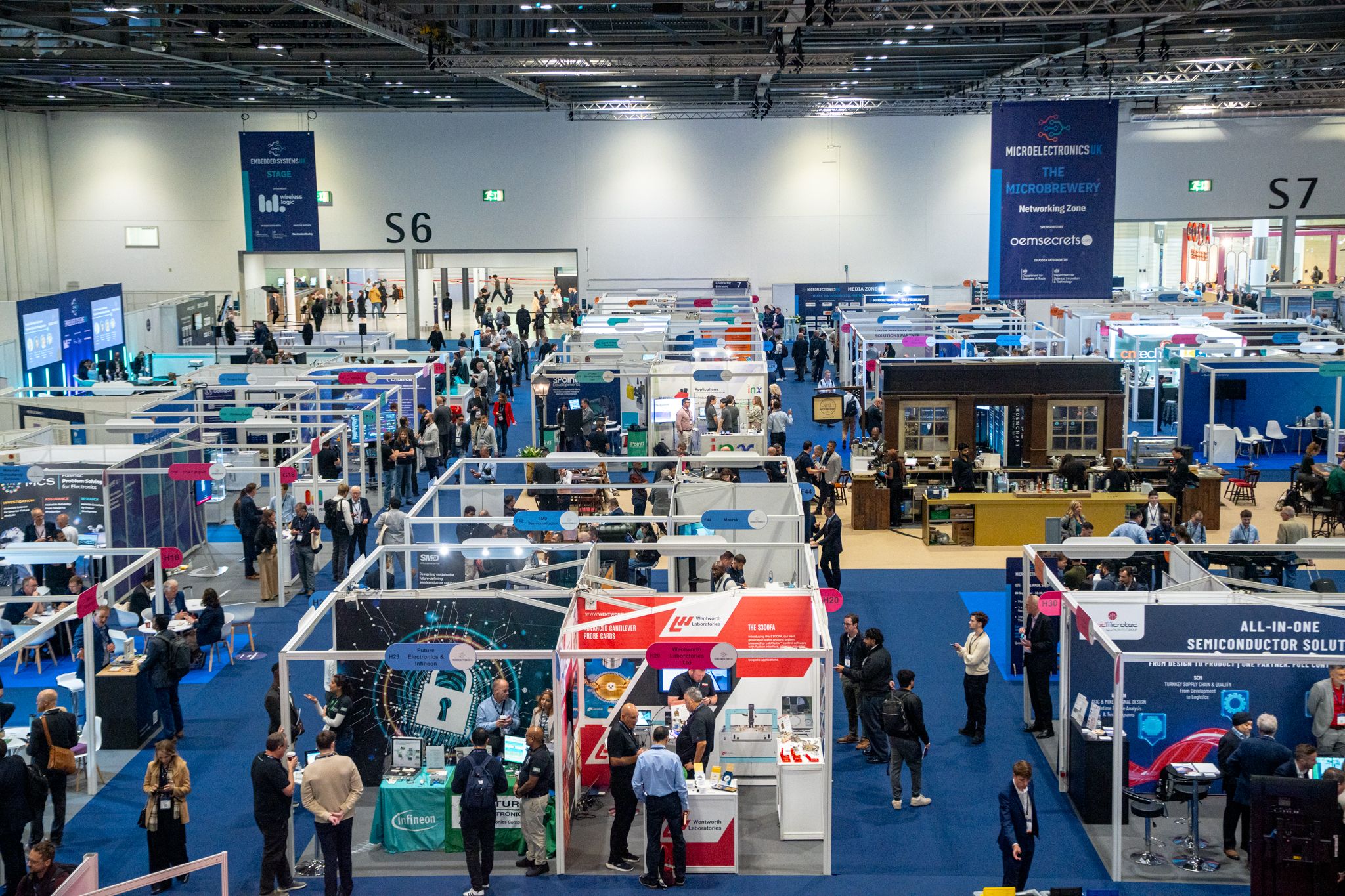UK Government Unveils £10m Semiconductor Fund as Microelectronics UK Opens in London

Day one of Microelectronics UK 2025 opened with a landmark announcement from tech minister Kanishka Narayan MP – a new £10 million Innovate UK fund to boost the UK semiconductor SME ecosystem. Alongside this, industry voices from TechUK, panels on smart mobility and AI, and collaboration with Malaysia’s semiconductor leaders highlighted the UK’s growing role on the global stage.
The key highlight on day one at Microelectronics UK was the opening address from tech minister Kanishka Narayan MP, who announced a £10 million fund with Innovate UK to boost the UK semiconductor SME ecosystem. The investment is expected to support up to 40 British businesses. “This funding will help early-stage companies innovate and bring new products to market,” said Narayan.
Narayan had previously spoken of the semiconductor skills package announced earlier this year, which was designed to ‘support learners at every stage of their learning… ensuring that the UK is ready to lead in the technologies of tomorrow.’
“There’s a very clear focus right across this government, which is that semiconductors are a key strategic priority for us,” Narayan added. “They underpin every aspect of our modern economy, from AI and quantum computing, to clean energy, telecommunications and defence. They are the invisible infrastructure of the digital age and a clear engine of growth.
“I hope you will feel that right across the UK, across the nations of this country, we are putting a fundamental focus on what semiconductors will do in our collective future.”

Sue Daley OBE, director at techUK, outlined how the UK semiconductor industry can ‘move from ambition to execution’, expanding on the steps outlined in techUK’s Plan for Chips report published earlier this year.
“If the global chip market is heading for $1 trillion by 2030, the UK needs to turn strategy into serious action,” said Daley. “That is the biggest message from industry right now; we need to act.
“The National Semiconductor Strategy has made some positive strides with establishing the UK’s Semiconductor Centre, holding a lot of potential to coordinate efficient support for the sector. Now, we must focus together on delivery,” Daley added. “That’s the task ahead, and groups like techUK, the Chips Coalition, are pushing hard to make this a reality.
“We need all of you to help to do this. We need to all work together.”
There were plenty of insightful panel sessions at Microelectronics UK, with one such example being at the Embedded Systems stage around smart mobility and software-defined vehicles (SDVs). As moderator Andy Birnie, VP automotive system engineering at NXP put it, the data conversation around SDVs inevitably became an AI conversation. Can AI be safe and deterministic as the automotive industry requires?
James Dickie, sales director at ETAS, noted: “I think the safety depends on how you’re training the models. At the moment, we’ve come from a background where you train a model to do a task, and that’s fine, but once you get into these vehicle applications, I think safety has to become part of the training.”
“I think as we move forwards, we’re moving to this AI economy. We’re also moving to agentic AI architecture,” said David Palmer, chief product officer and co-founder at Pairpoint by Vodafone. “When you do that, a lot of the car’s interaction is going to be through agents to other things [such as] payments, retail, safety, predictive maintenance. And that can’t all be in the car. So the car needs to move from being self-sufficient, to preparing to be interactive.”
At the Startup Launchpad Stage, there was a true sense of collaboration as speakers from Malaysia’s semiconductor industry explored the ways the UK and Malaysia could benefit from each other’s strengths.
Shariman Jamil, CEO at SMD Semiconductor, noted the compound semiconductor clusters across the UK as an area which Malaysia can leverage. “I think we understand the strength of both countries; that is the important thing,” said Jamil. “The UK is very highly innovative in terms of R&D, in terms of product IP. But the only problem is... if you want to build larger volumes of products. This is where Malaysia comes in.”
There are also synergies between Malaysia and the UK. Hai Liang (Duncan) Lee, director of technology at Malaysia Semiconductor Industry Association, noted the ‘very strong holistic global relationship’ between the two countries. “Malaysia recognises semiconductors as a key competitive arena… also welcoming international players as well,” he said.

Day 2 promises even more opportunities to learn, connect, and be part of shaping the UK’s microelectronics future.
)
)